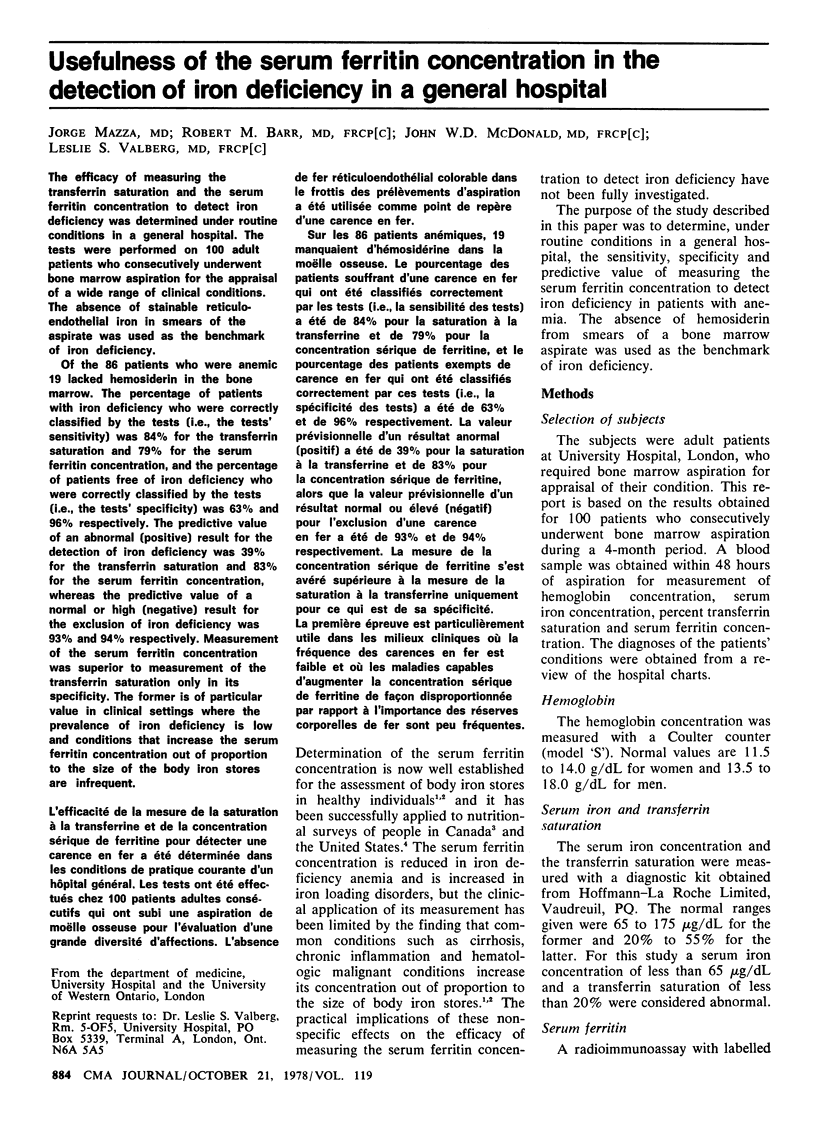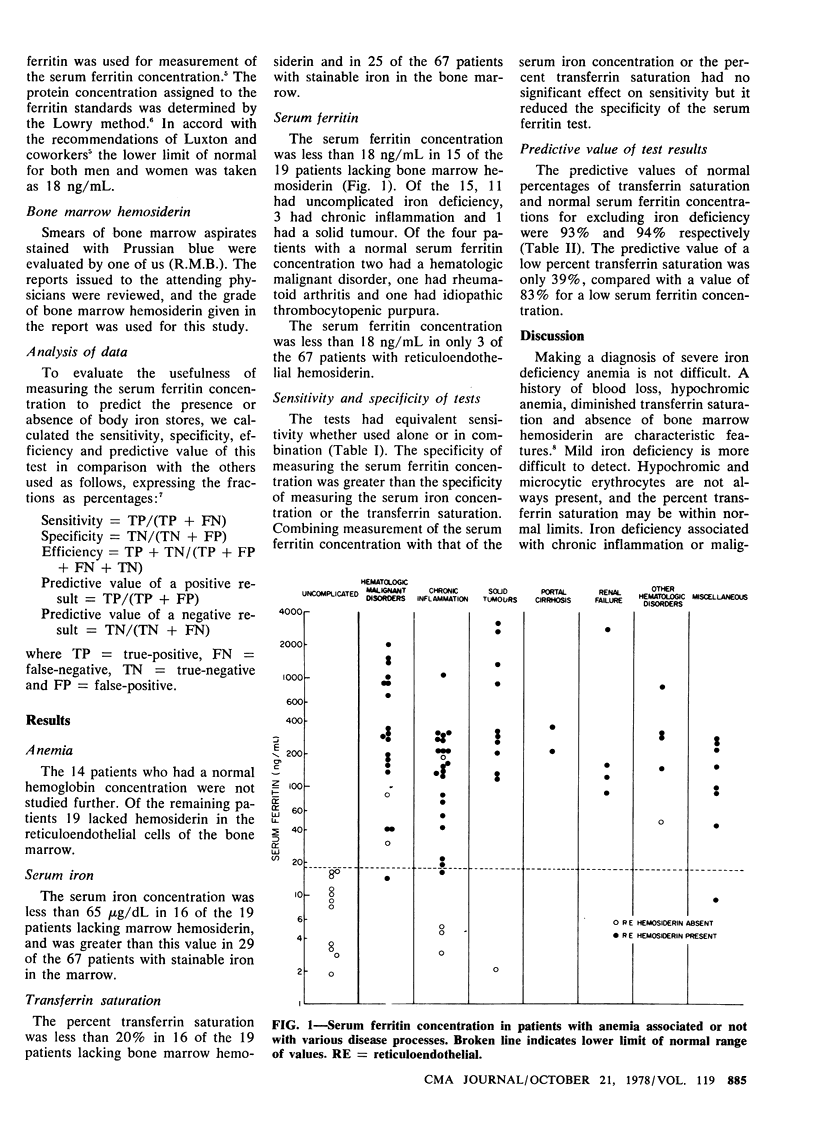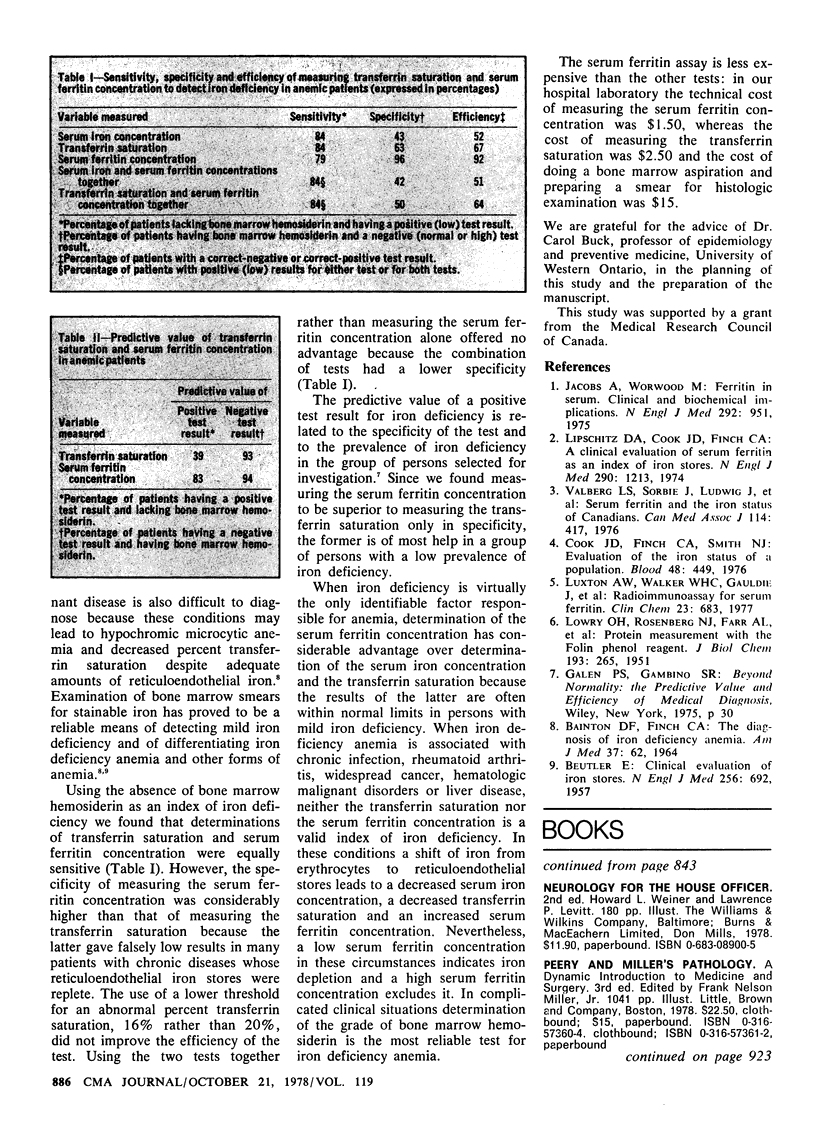Abstract
The efficacy of measuring the transferrin saturation and the serum ferritin concentration to detect iron deficiency was determined under routine conditions in a general hospital. The tests were performed on 100 adult patients who consecutively underwent bone marrow aspiration for the appraisal of a wide range of clinical conditions. The absence of stainable reticuloendothelial iron in smears of the aspirate was used as the benchmark of iron deficiency. Of the 86 patients who were anemic 19 lacked hemosiderin in the bone marrow. The percentage of patients with iron deficiency who were correctly classified by the tests (i.e., the tests' sensitivity) was 84% for the transferrin saturation and 79% for the serum ferritin concentration, and the percentage of patients free of iron deficiency who were correctly classified by the tests (i.e., the tests' specificity) was 63% and 96% respectively. The predictive value of an abnormal (positive) result for the detection of iron deficiency was 39% for the transferrin saturation and 83% for the serum ferritin concentration, whereas the predictive value of a normal or high (negative) result for the exclusion of iron deficiency was 93% and 94% respectively. Measurement of the serum ferritin concentration was superior to measurement of the transferrin saturation only in its specificity. The former is of particular value in clinical settings where the prevalence of iron deficiency is low and conditions that increase the serum ferritin concentration out of proportion to the size of the body iron stores are infrequent.
Full text
PDF


Selected References
These references are in PubMed. This may not be the complete list of references from this article.
- BAINTON D. F., FINCH C. A. THE DIAGNOSIS OF IRON DEFICIENCY ANEMIA. Am J Med. 1964 Jul;37:62–70. doi: 10.1016/0002-9343(64)90212-8. [DOI] [PubMed] [Google Scholar]
- BEUTLER E. Clinical evaluation of iron stores. N Engl J Med. 1957 Apr 11;256(15):692–697. doi: 10.1056/NEJM195704112561506. [DOI] [PubMed] [Google Scholar]
- Cook J. D., Finch C. A., Smith N. J. Evaluation of the iron status of a population. Blood. 1976 Sep;48(3):449–455. [PubMed] [Google Scholar]
- Jacobs A., Worwood M. Ferritin in serum. Clinical and biochemical implications. N Engl J Med. 1975 May 1;292(18):951–956. doi: 10.1056/NEJM197505012921805. [DOI] [PubMed] [Google Scholar]
- LOWRY O. H., ROSEBROUGH N. J., FARR A. L., RANDALL R. J. Protein measurement with the Folin phenol reagent. J Biol Chem. 1951 Nov;193(1):265–275. [PubMed] [Google Scholar]
- Lipschitz D. A., Cook J. D., Finch C. A. A clinical evaluation of serum ferritin as an index of iron stores. N Engl J Med. 1974 May 30;290(22):1213–1216. doi: 10.1056/NEJM197405302902201. [DOI] [PubMed] [Google Scholar]
- Luxton A. W., Walker W. H., Gauldie J., Ali A. M., Pelletier C. A radioimmunoassay for serum ferritin. Clin Chem. 1977;23(4):683–689. [PubMed] [Google Scholar]
- Valberg L. S., Sorbie J., Ludwig J., Pelletier O. Serum ferritin and the iron status of Canadians. Can Med Assoc J. 1976 Mar 6;114(5):417–421. [PMC free article] [PubMed] [Google Scholar]


